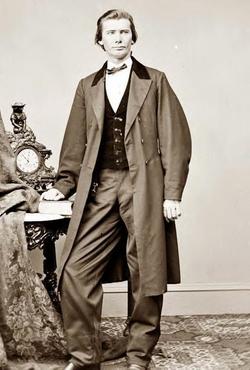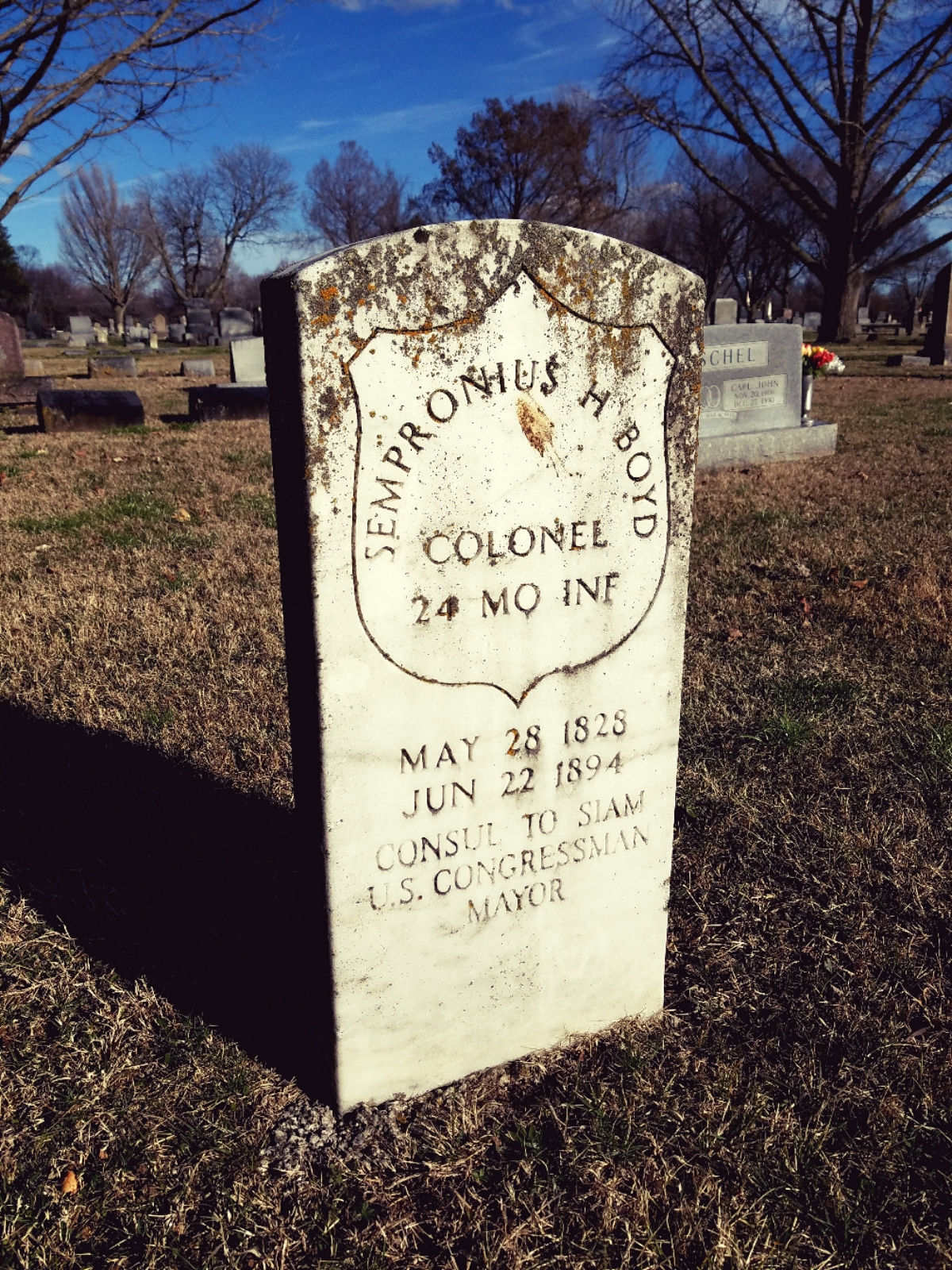chairman of the Committee on Revisal and Unfinished Business, and in January 1865 voted in favor of the 13th Amendment to the United States Constitution that abolished slavery. He declined to run for a second term, and after his Congressional term ended on March 4, 1865 he was appointed Judge of the court of the Fourteenth Judicial District Court (his successor to the seat, John Russell Kelso, had served during the Civil War under Colonel Boyd in the 24th Missouri Infantry). While serving as Judge he presided over the August 1865 trial of now-legendary Western Frontier figure James Butler “Wild Bill” Hickock, who had shot a man in a gunfight in Springfield, Missouri in July 1865, and was acquitted after Judge Boyd instructed the jurors about “jury nullification” (the fight would help make Hickock famous). He became involved in developing the Southwestern Pacific Railroad, and was again elected to the United States House of Representatives, served as a Republican and representing again Missouri’s 4th Congressional District from 1868 t0 1871. He resumed his law practice and business ventures in Springfield after the end of his second Congressional term. In 1890 he was appointed by President Benjamin H. Harrison as United States Minister to the Kingdom of Siam (today’s Thailand), and he served in that diplomatic post from 1891 to 1892. He passed away in Springfield at age 66 in 1894.
chairman of the Committee on Revisal and Unfinished Business, and in January 1865 voted in favor of the 13th Amendment to the United States Constitution that abolished slavery. He declined to run for a second term, and after his Congressional term ended on March 4, 1865 he was appointed Judge of the court of the Fourteenth Judicial District Court (his successor to the seat, John Russell Kelso, had served during the Civil War under Colonel Boyd in the 24th Missouri Infantry). While serving as Judge he presided over the August 1865 trial of now-legendary Western Frontier figure James Butler “Wild Bill” Hickock, who had shot a man in a gunfight in Springfield, Missouri in July 1865, and was acquitted after Judge Boyd instructed the jurors about “jury nullification” (the fight would help make Hickock famous). He became involved in developing the Southwestern Pacific Railroad, and was again elected to the United States House of Representatives, served as a Republican and representing again Missouri’s 4th Congressional District from 1868 t0 1871. He resumed his law practice and business ventures in Springfield after the end of his second Congressional term. In 1890 he was appointed by President Benjamin H. Harrison as United States Minister to the Kingdom of Siam (today’s Thailand), and he served in that diplomatic post from 1891 to 1892. He passed away in Springfield at age 66 in 1894.
Bio by: RPD2
Family Members
Advertisement















